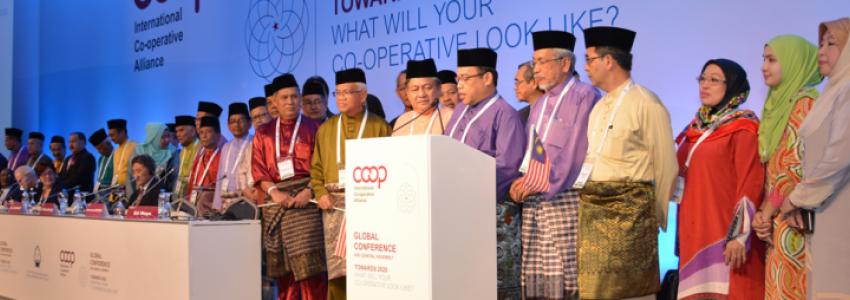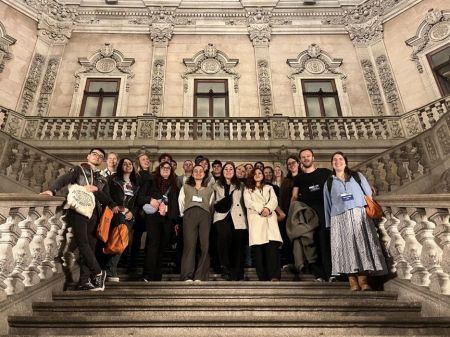
The idea to introduce co-operatives in Malaysia (then, Malaya) was initiated by Sir Arthur Young (British Secretary of the Straits Settlements) in 1907 as a result of his observations on the success of the co-operative movement in Cyprus. Initially, the response of the local community towards the co-operative movement was less than favourable as it was believed that it contained elements that were considered suspicious.
Subsequently, Sir Alexander Cavendish, State of Kedah’s Assistant British Advisor at the time, proposed to Sir George Maxwell, the British Advisor in State of Kedah, that a government officer be sent to Burma to study the success of the Raiffeisen Co-operative concept. From 14 April until 23 June 1921, Sir Alexander Cavendish himself was dispatched to Burma to study and make recommendations on the appropriate methods to introduce the co-operative in Malaysia.
Upon his return from Burma, a report was tabled before the Federal Council on 12 December 1921 for the purpose of debate. On 28 June 1922, the first co-operative law called the Co-operative Societies Enactment was passed by the Federated Malay States Council. This law was gazetted by the Bristish Government on 15 July 1922.
Following the gazette, the Postal and Telecommunications Co-operative Thrift and Loan Society Limited Company was registered on 21 July 1922 and became the first co-operative society to be registered in the country. The company remains active to this day.
Formation of Angkasa
In 1966, the First Cooperative Congress was held with the goal to establish a national cooperative union. The aim was to unite all the cooperatives in Malaysia under one federation for cooperatives. On 12 May 1971, Angkatan Kerjasama Kebangsaan Malaysia Berhad (ANGKASA) was officially registered as the national union as a result from the Second Cooperative Congress. With the inception of ANGKASA as a union of co-operative herald the beginning of a journey of a united and formidable co-operative movement in Malaysia. Since its establishment, ANGKASA has played the role as the apex of cooperatives for the Malaysian cooperative movement. With the approval of the new Cooperative Act in 1993, ANGKASA was formally recognized by the government of Malaysia to represent the co-operative movement nationally and internationally.
ANGKASA implements co-operative transformation programs through its participation in high value economy projects. The government has identified the 7 key economic sectors; Financial Services, Wholesale & Retail, Tourism & Healthcare, Agriculture & Agro-Base Industry, Plantation, Telecommunication, and Property Development. ANGKASA continues to carry out its core service which is providing salary deduction service to the government servants, co-operatives statutory bodies, clubs, school co-operatives, unions and GLC companies. ANGKASA maintains to play very active role in the formation and development of school cooperatives in Malaysia.
There are currently more than 12,000 co-operatives and over 7.5 million co-operators under the stewardship of ANGKASA. The Government launched the 2011 - 2020 National Co-operative Policy and through a tri-partite agreement between Malaysia Cooperative Societies Commission (MCSC), ANGKASA and Cooperative College of Malaysia (CCM), ANGKASA has been given the following mandate:
- To unite and represent co-operators in Malaysia at national and international level
- To stimulate and develop the co-operatives business by identifying new business areas while developing and strengthening existing business to create a national and international network
- To increase the understanding and practices of co-operative values and principles aligned with ILO Recommendation 193 which recognize co-operatives as a tool for economic and social development of the community
As part of the Malaysian Economic Transformation Programme, ANGKASA plans to spearhead the movement to achieve significant contribution to the Nation’s Gross Domestic Product. The mechanisms and fundamentals to achieve this will ultimately rest on ANGKASA - innovativeness and strategies in leveraging available resources and networks.
ANGKASA has positioned itself on the global co-operative platform and has been entrusted to the Chairmanship as well as hosting the secretariat office of ASEAN Co-operative Organisation (ACO) and the ICA Asia Pacific Malaysia Business Office (MBO). With these responsibilities, ANGKASA is unswervingly developing new global economic total linkages in new partnerships / alliances and networks.
For more information on ANGKASA, visit www.angkasa.coop




